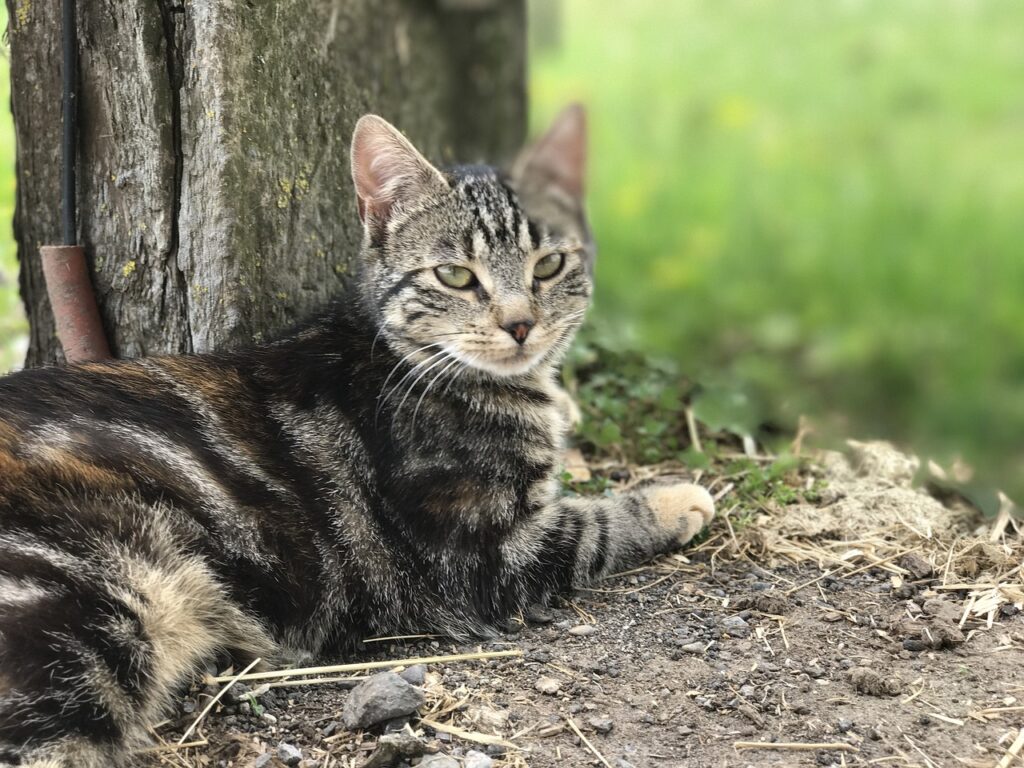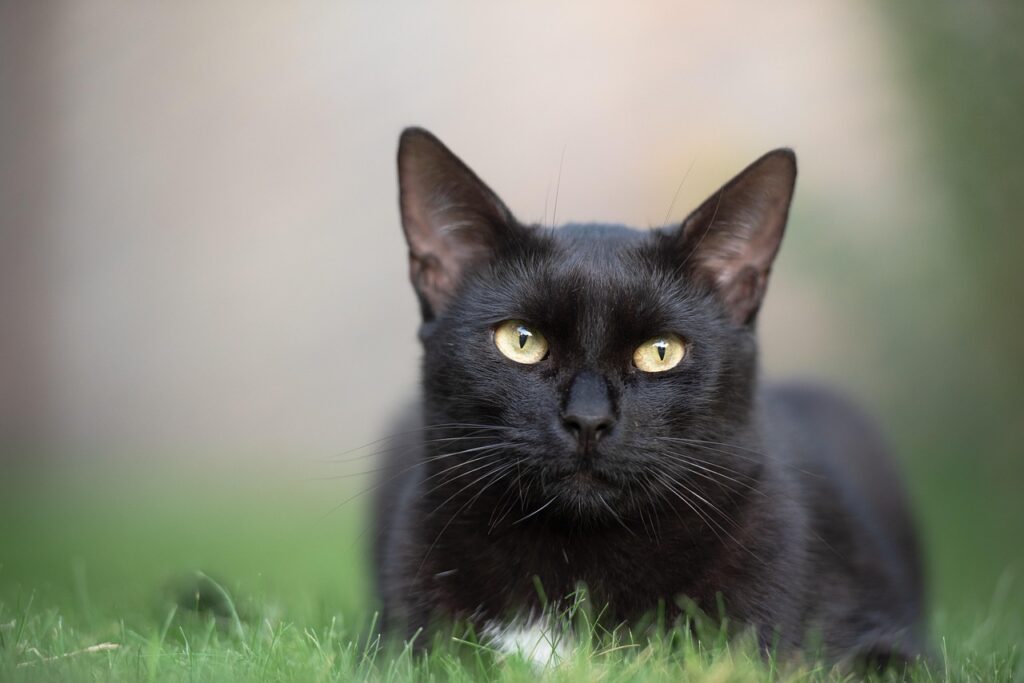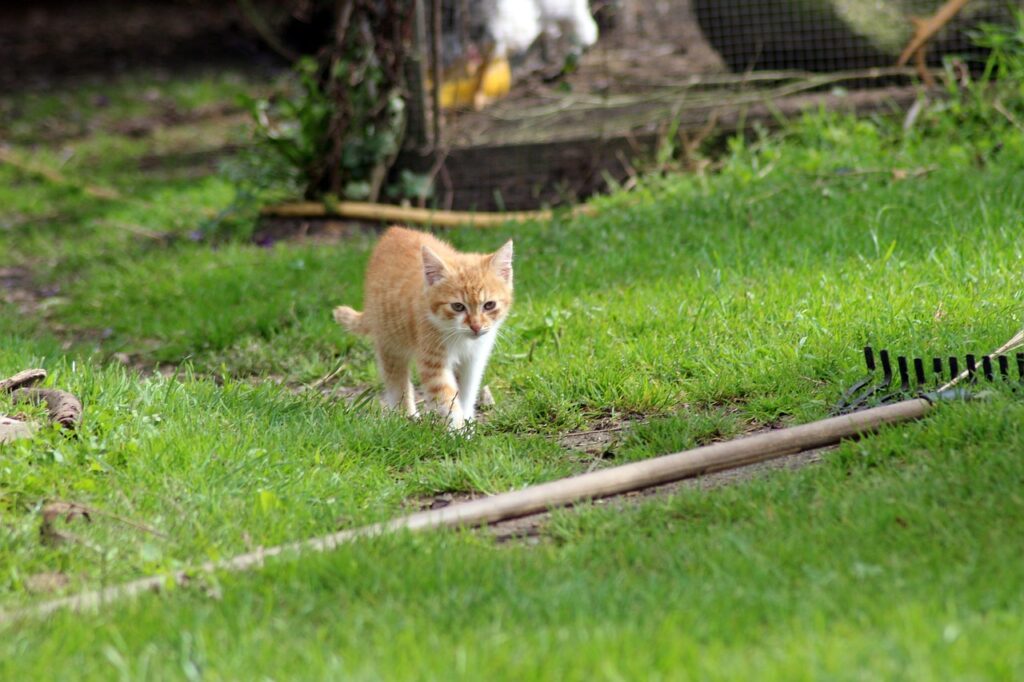In general, cats are beneficial to have on a homestead due to their ability to provide pest control and companionship. However, there are some considerations to look at before adding cats to your homestead.

What Are The Main Uses Of Cats On A Homestead?
Pest Control
One of the primary uses of cats on a homestead is for pest control. Cats are natural hunters. They help to control rodents, mice, rats, and other small pests that can damage crops, stored goods, or harm other animals.
Protection
Cats can also serve as protectors of the homestead. They can alert their owners to any potential threats as well. Not like dogs with barking, but with their behavior. Cats that have bonded with their owners may attack others if they feel threatened.
Companionship
Many homesteaders enjoy the company of cats. They provide affection and companionship. Cats can be excellent pets and can offer emotional support, especially in isolated or remote areas.
Sustainability
Cats can also help to promote sustainability on a homestead. They require minimal resources. Cats do not require as much food or water as other homestead animals. For sustainability, cats reduce the need for chemical pest control methods, therefor making them better for the environment.
Vaccinations For Cats
Cats require vaccinations to protect them from various diseases. The vaccines that cats need depend on several factors, including their age, lifestyle, and overall health status. Here are some of the core vaccines recommended for cats:
- Rabies vaccine: This vaccine is mandatory in many areas and is important for protecting cats from rabies, a serious and often fatal viral disease that can affect both cats and humans.
- Feline viral rhinotracheitis, calicivirus, and panleukopenia (FVRCP) vaccine: This vaccine is a combination vaccine that protects against three common viral diseases in cats: feline herpesvirus, calicivirus, and panleukopenia.
- Feline leukemia (FeLV) vaccine: This vaccine is recommended for cats that go outside or interact with other cats, as it helps to protect against feline leukemia virus, a serious and often fatal viral disease that can be transmitted through close contact with other cats.
- Feline immunodeficiency virus (FIV) vaccine: This vaccine is not commonly used as it is not effective against all strains of FIV, and it can interfere with the ability to diagnose FIV infection. However, it may be recommended in some situations, such as for cats at high risk of FIV exposure.
Your veterinarian can help you determine which vaccines your cat needs and on what schedule. It’s important to keep your cat’s vaccinations up to date to help protect them from disease and maintain their overall health.

How Many Cats Should I Have On My Homestead?
In general, it’s recommended that you have no more than two to three cats per acre of land. This guideline can help to ensure that your cats have enough space to roam and hunt, and it can also help to prevent overcrowding and potential health problems. It is also important to spay and neuter cats to prevent an increase in numbers.
Additionally, you should consider how many cats you can reasonably care for, both financially and in terms of time and attention. Cats require daily care, including feeding, cleaning, and interaction, and they can also have unexpected medical needs.
Ultimately, the decision of how many cats to have on a homestead is a personal one, and it should be based on your ability to provide for them and their needs. It’s important to consider the impact that cats may have on your homestead, including their potential for pest control and companionship, as well as any potential risks to other animals or crops on the homestead.
What Are The Benefits Of Cats On A Homestead?
On a homestead, cats provide several benefits including rodent control, pest control, companionship, and relative low-maintenance care.
- Rodent control: Cats are natural predators of rodents and can help keep them under control on a homestead.
- Pest control: Cats can also help control other pests, such as insects and snakes, which can be a problem on a homestead.
- Companionship: Cats can provide companionship and be a source of comfort on a homestead.
- Low-maintenance: Compared to other animals on a homestead, cats require relatively low maintenance and can be self-sufficient in many ways.
What Are The Cons Of Cats On A Homestead?
Cats can pose a health risk to humans if not properly vaccinated. Additionally, cats can be prey for wild predators. Besides that, cats may need to be trained not to kill off your livestock.
- Health risks: Cats can carry diseases that can be transmitted to humans, such as toxoplasmosis and cat scratch fever. Proper hygiene and regular veterinary care are important for minimizing these risks.
- Wildlife predation: Cats may hunt wildlife, which can be a concern for those who are trying to preserve a natural ecosystem on their homestead.
- Training: If you have other animals on your homestead, such as chickens or goats, it’s important to train your cats not to hunt them.
- Population control: It’s important to spay or neuter your cats to prevent overpopulation and reduce the risk of unwanted kittens.

Overall, having cats can be beneficial, but it’s important to weigh the benefits and considerations before making a decision. If you do decide to have cats, make sure to provide them with proper care, attention, and training to ensure their health and well-being.
Continue Reading about Animals to Have on a Homestead
Recent Posts
In general, to harvest your own seeds, you must choose mature, healthy plants, allow seeds to dry out, and remove the seeds when they are completely dry. However, this process will look different for...
A guide on how to store and organize seeds for your garden. Vegetables, flowers, herbs, or anything you are wanting to grow. How to Store Your Seeds Proper storage of garden seeds is essential...
